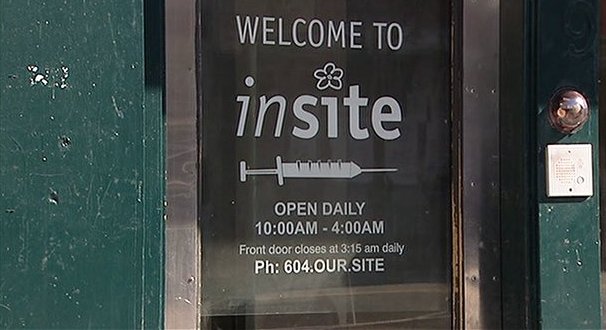It is fascinating to watch Tory candidates in this election campaign defending Bill C-51 and the new laws permitting the stripping of citizenship by invoking the protection that is offered to us by the role of the courts in the application of those laws. “Don’t you trust the courts?” they ask. They might want to look in the mirror when they ask that question.
A first egregious example of the outgoing government’s obstinacy in the face of reasoned decisions from the courts: the InSite case, and more generally the issue of supervised injection services in Canada. They fought, using our tax dollars, through every level of the courts, only to be told in the end that this was a question of health and not criminality and that they would have to grant the exemption from the application of the Criminal Code that would allow this facility in BC to operate.
Let’s just note the federal role in the operation of InSite. It is all about that Criminal Code exemption and not about funding it. The province, responsible for delivering health care to individuals, has decided that the evidence supports funding the facility and committed to doing that. Numerous attempts on the part of the federal government to develop evidence to the contrary fell flat because the place saves lives and operates as an entry point to other services that actually help people to stop using drugs.
The thing to understand about harm reduction — and supervised injection services are just one example among many, many accepted interventions that follow this model — is that it starts from the undeniable premise that some people are going to choose to do things that are not healthy for them. The intervention is designed to reduce as much as possible the associated harms and to build confidence in the resources and services that can also eventually help when the person changes his or her mind about wanting to continue doing the activity. There is a pathway to healing, and until the person decides to follow that pathway, we work to keep them alive and as healthy as possible. It’s a complex situation that deserves a better answer than “Drugs are bad”.
In the InSite case, the courts plainly did protect us from the menace of an overreaching government, as they might well do when they eventually strike down other unconstitutional laws. The reaction of the government to the InSite decision doesn’t seem to be quite as respectful of the role of the courts as they like to suggest when it suits them. Are they for or against the courts protecting us from them?
Further reading here.
If you do use drugs
your pathway to finding health
is blocked by Tories
your pathway to finding health
is blocked by Tories


No comments:
Post a Comment